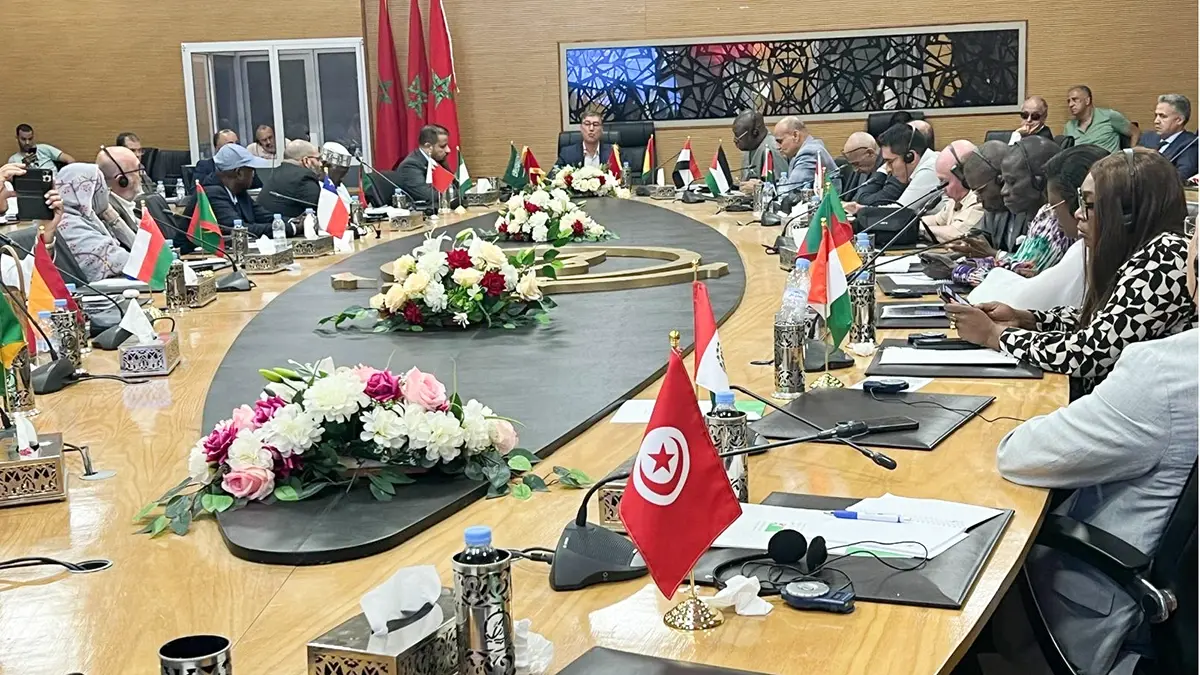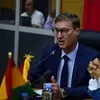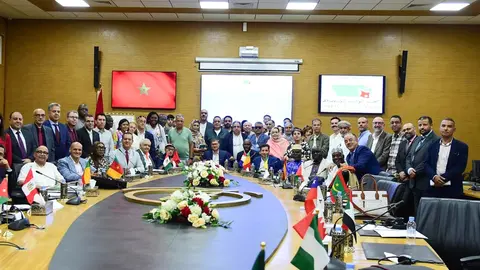The issue is ethical rather than political

However, participants found themselves discussing the seminar's topics, such as disinformation journalism, fake news and the sowing of hatred between peoples... faced with a paradox that was impossible to ignore: they were in a region that has suffered more false propaganda and disinformation than any other in the world. What they experienced and witnessed has nothing to do with what is reported in many media outlets, organisations and positions taken by certain parties on the Sahrawi provinces of Morocco.
This media disinformation was denounced by Sudanese journalist Al-Sadiq Al-Rizqi, who stated: 'When I set foot in the city of Dakhla, in southern Morocco, I discovered that I was yet another victim of media disinformation and fabricated stereotypes about the Sahara issue. I was a victim of false and misleading news. I remember those reports about political marginalisation, socio-economic injustice and the alleged denial of rights to the citizens of the Moroccan Sahara. The stereotype always portrayed the people of this region as poor, oppressed and marginalised, without a voice or power, living on the fringes of political and economic life. But, to my surprise, I found a modern, dynamic and young city, with all the components of contemporary life. The society here is cohesive, with no trace of the conflicts and lies spread by black political propaganda.'
Palestinian journalist Mohammed Mahna shared the same conviction, recounting that the mental image he had of Dakhla, like most people who only knew it from hearsay, was that of a city full of military checkpoints, strict surveillance and a tense atmosphere. 'Phrases such as 'conflict zone', 'protracted dispute' and 'marginal city' always echoed in my head. I wondered: Will I be able to move around freely? Is filming allowed? Can I talk to people without any problems? In short, I imagined it as a closed area, surrounded by barbed wire, with inhabitants isolated by fear of the unknown.'
But all those ideas began to fade from the moment the plane took off from Casablanca airport bound for Dakhla. ‘What struck me was that the plane was full. Half of the passengers were Moroccans, and the other half were Europeans: some young people in small groups, others entire families with children. So I wondered curiously: why would these tourists come to a 'conflict zone'? What attracts them? What don't I know about this city?’
Mohammed Mahna discovered that these Europeans were surfing enthusiasts, in a region where there was no trace of the clashes portrayed by stereotypical propaganda. After touring the city and talking to people, his conclusion was clear: ‘Leave your prejudices behind.’
The best way to deconstruct these stereotypes is to travel, walk the streets of the world and talk to people without preconceived ideas, said Mexican journalist Omar Cepeda Castro, who pointed out: ‘One of the clearest examples of misinformation is what is said about the southern provinces of the Kingdom of Morocco, where many lies are woven, while the reality on the ground proves the opposite.’
Spanish journalist Javier Fernández Arribas defended the methodology of fieldwork, criticising desk journalism that repeats stereotypes and does not reflect the truth about the Moroccan Sahara issue.
Among the participants in the seminar, held on 20 and 21 June, some had previously sympathised with the separatist thesis, but discovered the falsity of its claims and revised their positions. This is the case of Basque journalist Patricia Medjidi Juez, who travelled to Tindouf to report on the Sahrawis and encountered realities very different from those of the separatist narrative, which led her to produce a documentary on the subject. The same was true for Peruvian journalist Ricardo Sánchez Sierra, who stated: 'I don't believe the stories. I visited Tindouf and saw that it is a large prison... There I witnessed repression, while in Dakhla I breathed the air of freedom.'
What happened at the seminar in El Jem was that the 35 foreign participants, from Spain, Latin America, the Arab world and Africa, were confronted with an ethical question. It was not a question of prior political stance, but of professionalism, which requires applying research methodologies and not repeating stereotypes or falling into the trap of false propaganda. The issue is ethical rather than political.


